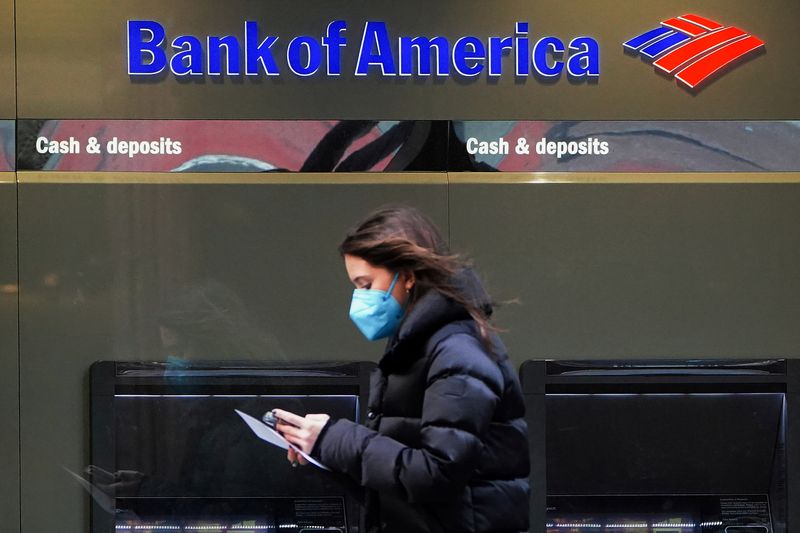By Chiara Elisei and Dhara Ranasinghe
LONDON (Reuters) - Investors have withdrawn $316 billion from credit funds this year, unwinding all of the previous year's inflows, BofA Global Research said in a note on Friday.
That is a bearish signal for corporate debt markets as high inflation and rising interest rates darken the economic outlook, and is in sharp contrast to inflows into share markets.
In its latest note on fund flows, BofA said equities funds had seen inflows of $207 billion in 2022, below the "euphoric inflows" of the previous year.
Optimism towards both credit and share markets has risen in recent weeks as expectations grow that inflation is peaking and the aggressive pace of central bank rate hikes can now slow.
But BofA said its Bull & Bear indicator jumped to 2.0 from 1.4, meaning a "buy signal" for risk assets is close to an end.
There are no large corporate debt maturities looming next year, so companies have some breathing space from higher borrowing costs.
But analysts said the risk that companies refinancing their debt would have to do so at much higher borrowing rates meant the need for a cautious approach to high-yield credits.
"We think there is a false sense of security in markets at the moment," said Seema Shah, chief strategist at asset manager Principal Global Investors.
The BofA note showed that in the week to Wednesday, bond funds saw outflows worth $2.4 billion, including the first outflow for high yield bonds in six weeks to the tune of $300 million.
Equity funds suffered a $14.1 billion outflow in the largest exit in three months, BofA said, citing EPFR data. U.S. equity funds saw a $16.2 billion outflow, the biggest since April.

Cash funds attracted $31.1 billion of inflows and gold funds added $59 million, BofA added. Government bonds and Treasuries saw a $2.3 billion inflow.
In emerging markets, BofA said bonds had a 15th week of outflows, losing $500 million, while equities attracted $1.1 billion of inflows.